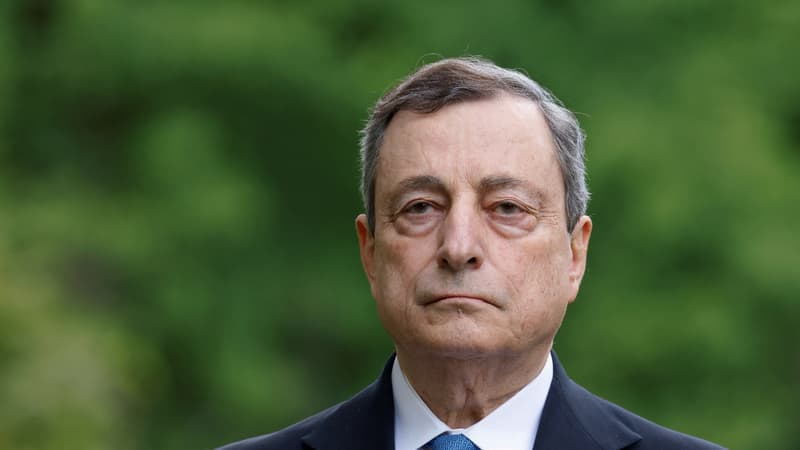Europe will have to invest “massively” in a short time and mobilize new public and private financing, declared on Saturday the former head of the Italian Government Mario Draghi, who is preparing a report on the competitiveness of the European Union. “In recent years there have been many profound changes in the world economic order” and one of the consequences is that “we will have to invest enormously in Europe in a relatively short period of time,” declared the former president of the European Central Bank. (ECB), during a meeting of Finance Ministers of the Twenty-seven in Ghent (western Belgium).
The green transition to combat climate change, the digital revolution and the rearmament of the European Union against Russia represent an immense challenge for the 27 Member States as they try to reduce their debt and budget deficits. This investment wall raises the question of a possible new common European loan, following the historic 800 billion euro post-Covid recovery plan, an idea proposed by French President Emmanuel Macron and supported by the EU Commissioner for the Economy. , Paolo Gentiloni, but rejected by several countries, including Germany.
Debates around a capital markets union in Europe
Investment needs also raise the question of better integration of EU financial markets to mobilize private savings more effectively, an issue on which the Twenty-Seven are struggling to make progress due to divergent national interests. The French minister, Bruno Le Maire, proposed on Friday to move forward with some countries willing to create a European savings product. At their next meeting on March 11, finance ministers hope to agree on a list of objectives to create a capital markets union in Europe. The mobilization of resources from the European Investment Bank (EIB) to finance the nuclear sector and military spending is also discussed.
Mario Draghi will present a report on the competitiveness of the European economy at the end of June. The Ghent meeting offered the opportunity for a first exchange with ministers as they prepare the guidelines of the next European Commission that will take office after the elections in June. The Italian official estimated that the EU must think “how to finance these investment needs” by mobilizing “not only public money, but also private savings in a much greater way than in the past.” The two days of meetings in Ghent gave rise to “an intense debate free of taboos,” said Belgian Finance Minister Vincent Van Peteghem, whose country holds the rotating presidency of the EU Council.
Source: BFM TV


